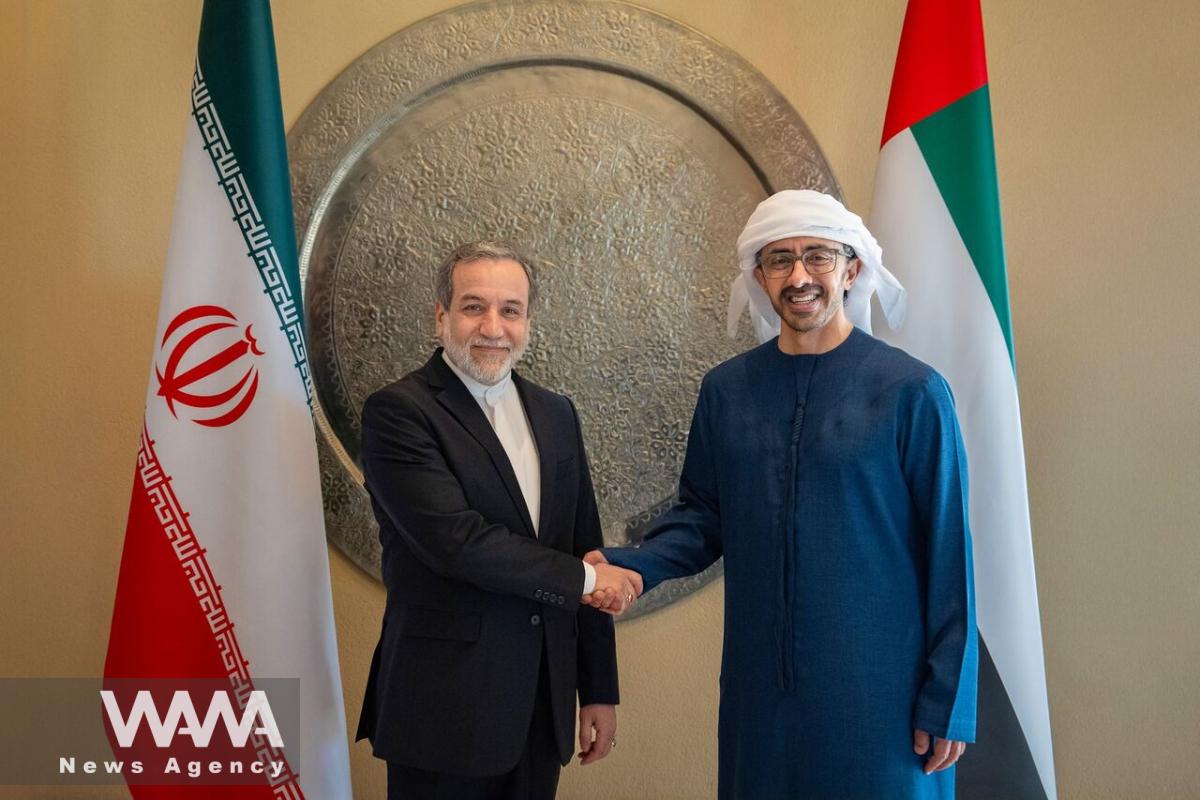Iran-UAE Economic Diplomacy
WANA (Mar 21) – The economic relations between Iran and the UAE hold significant potential, capable of fostering economic growth and regional stability through cooperation in energy, trade, and transit sectors.
These relations are shaped by a complex structure influenced by domestic, regional, and global factors. While geopolitical pressures have consistently impacted them, they have simultaneously created considerable opportunities for economic and trade collaboration. This article first examines the intrinsic strength of Iran-UAE relations and the reasons behind their bilateral cooperation. Then, it analyzes the role of global powers (the U.S., China, Russia, India, and the UK) in shaping these dynamics.
1. The Internal Strength of Iran-UAE Relations and the Rationale for Cooperation
Iran and the UAE’s economic ties are built on a set of geographical, economic, and historical advantages, making their collaboration a strategic necessity.
1.1. Geographical Advantage and Strategic Position
Geographical Proximity: Positioned on opposite sides of the Persian Gulf, Iran and the UAE benefit from reduced transportation and logistics costs, creating a competitive advantage.
UAE as a Regional Trade Hub: Dubai, one of the world’s largest re-export hubs, plays a crucial role in facilitating Iranian trade.
1.2. Complementary Economies
Iran: A Supplier of Energy and Raw Materials – With vast oil, gas, and petrochemical resources, Iran can meet a portion of the UAE’s energy needs.
UAE: A Gateway to Global Markets – With advanced ports like Jebel Ali and a sophisticated financial system, the UAE provides Iran with a trade corridor to global markets, even under sanctions.
1.3. Informal Trade History and Mutual Dependence
Traditional Trade Networks: Decades of informal trade through dhows and business networks have forged deep economic ties between the two nations.
Dubai’s Role in Iran’s Imports: Many UAE-based small and medium enterprises rely on trade with Iran, while Iran uses Dubai as a primary entry point for essential goods.
1.4. Necessity of Cooperation
Sanctions Evasion: The UAE serves as a crucial channel for bypassing financial and trade restrictions on Iran.
Economic Diversification for the UAE: Strengthening ties with Iran helps the UAE reduce its one-sided dependence on the West, making it a more autonomous player.
Regional Stability: Economic cooperation can ease political tensions and contribute to stability in the Persian Gulf.
2. The Role of Global Powers in Iran-UAE Economic Relations
2.1. The U.S.: The Primary Obstacle to Cooperation
Secondary Sanctions: Since 2018, the U.S. has imposed heavy financial sanctions, pressuring UAE banks like FAB and Emirates NBD to limit their dealings with Iran.
Abraham Accords (2020): The UAE’s growing ties with Israel under U.S. influence have deterred major Emirati companies from investing in or directly trading with Iran.
Impact: Through sanctions and diplomatic pressure, the U.S. has significantly constrained Iran-UAE economic interactions.
2.2. China: A Facilitator and Strategic Partner
Belt and Road Initiative (BRI): China’s investments in Jebel Ali (UAE) and Chabahar (Iran) have positioned both as key nodes in Asian trade.
Non-Dollar Transactions: China utilizes the yuan for trade with Iran, and Chinese banks in Dubai play a crucial role in circumventing financial sanctions.
Impact: China has been instrumental in enabling Iran-UAE economic cooperation and has maintained a more independent approach compared to India.
2.3. Russia: Strategic Alignment and a Counterbalance to the West
Alternative Financial Systems: Iran and Russia have explored the Mir payment system and cryptocurrency use to counter Western financial pressure.
Energy Sector Collaboration: Russian oil companies like Lukoil have used UAE ports for Iranian oil exports.
Impact: Russia provides alternative financial and trade mechanisms, supporting Iran against Western sanctions.
2.4. India: A Limited and U.S.-Dependent Player
Reduction in Trade Due to Western Pressure: Unlike China, India halted its oil imports from Iran in 2019 to comply with U.S. sanctions.
Delays in Chabahar Investments: Despite promises of a $2.5 billion investment, India has only allocated $250 million, postponing projects under U.S. pressure.
Impact: India lacks strategic independence and plays a minimal role in Iran-UAE economic relations.
2.5. The UK: Financial Control over UAE’s Banking System
Influence Over Emirati Banks: British banks like HSBC and Standard Chartered enforce Western sanctions through the UAE’s financial network.
Impact: While the UK has effectively restricted formal Iran-UAE financial cooperation, it has failed to halt informal trade entirely.
3. Practical Strategies for Strengthening Iran-UAE Economic Cooperation
3.1. Prioritizing China and Russia as Strategic Partners
Expanding trade and banking routes independent of the U.S. dollar through yuan and ruble transactions.
Enhancing logistical cooperation, such as upgrading Chabahar and linking it to UAE ports.
3.2. Strengthening Informal Trade and Re-Exports
Leveraging Dubai as Iran’s re-export hub for accessing global markets.
Boosting traditional trade routes to mitigate reliance on formal, sanction-prone channels.
3.3. Establishing a Three-Way Financial System with the UAE and China
Developing a payment system based on the dirham-yuan-rial to reduce dependency on Western-controlled banks.
Iran-UAE economic relations hold substantial potential, capable of promoting growth and stability through energy, trade, and transit collaboration.
The U.S. and the UK remain the primary obstacles.
China and Russia serve as Iran’s key strategic partners in countering sanctions.
India’s deep reliance on the U.S. limits its role in Iran-UAE cooperation.
Iran and the UAE should enhance their relations by focusing on informal
trade, deepening ties with China and Russia, and developing alternative financial systems—while minimizing dependence on India.












